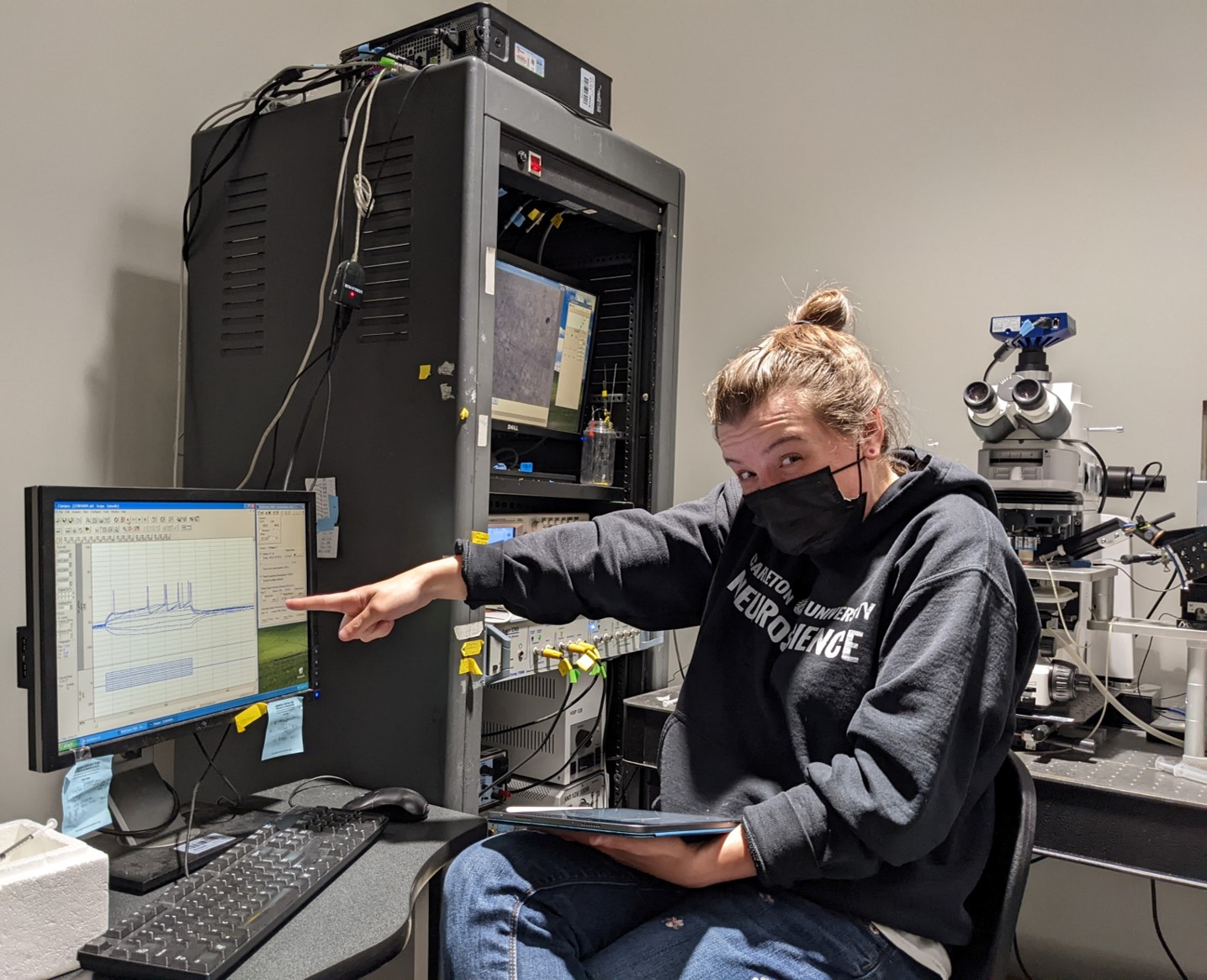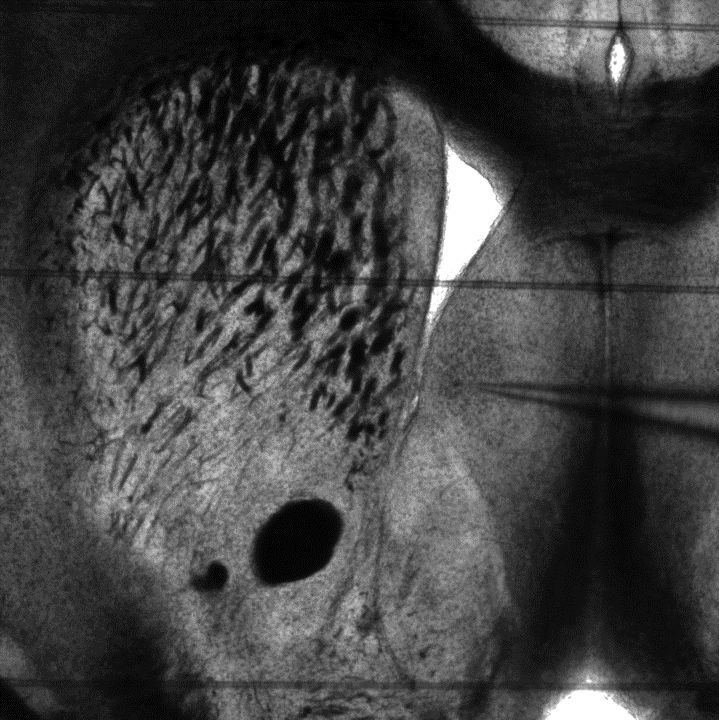By Jena Lynde-Smith
At a time when New Year’s resolutions are top of mind, weight loss is a focus for many people. Ads for gym memberships, diet pills, juice cleanses and nutrition coaching flood social media feeds, with the onus to lose weight put on the individual. “Move more,” we’re told, “and eat less.”
Melissa Chee, a researcher in Carleton’s Department of Neuroscience, is challenging these messages in her lab, the Chee lab. Her research takes the pressure off the individual and shows there are many factors to consider when it comes to weight management, and the brain is at the centre of it all.
“Weight gain is extremely stigmatized, and the blame is put on the person’s choices,” says Chee. “There’s a scientific basis for why people gain weight, and it isn’t the willpower to exercise or restrict eating.”

Melissa Chee
Chee’s work is prompted by the fact that obesity rates in Canada are alarmingly high, with two thirds of the population classified as obese or overweight. Many conditions including high blood pressure, diabetes, cardiovascular disease and even some cancers have been linked to obesity. Yet, despite its impact on public health, there are very few medications that address the issue, and the ones that do exist offer a one-size-fits-all solution for an extremely complex problem.
Going back to the basics, Chee is working to determine the root causes of obesity. She says she hopes her research will eventually help inform the development of pharmaceuticals that are both effective and personalized.
“We need to know what’s causing the problem before we can begin looking at solutions,” Chee explains. “You can’t understand what’s wrong with a car without inspecting the engine.”
The Complexity of Weight Management
Weight management is often explained by an equation: energy in (the calories we eat and drink) must match energy out (the calories we burn), otherwise there will be weight gain or weight loss. If we burn more than we eat, we will lose weight, and vice versa.
“It sounds simple, but it’s really a lot more complicated than that,” Chee says.
Looking at this equation, it’s easy to deduce that if we exercise more, we can lose weight. But according to Chee, exercise only makes up for 10 to 15 per cent of total energy expenditure.
“We actually burn energy in many ways — while we’re sleeping, fidgeting, or even sitting still,” she says.
Given the complexity of energy expenditure, Chee says that the most effective way to create change is to control eating. But what causes us to eat?

The Chee lab is comprised of undergraduate and graduate student researchers. As a woman and a minority, Chee has emphasized supporting students from diverse social or cultural backgrounds.
According to Chee, the brain is responsible.
“There is a whole network of brain cell activity that produces the behaviour of feeding,” says Chee. “Brain cells communicate with one another, releasing hormones and chemical messengers in the process that trigger thoughts of eating.”
The Role of the Brain
Our brain prompts us to eat for several reasons — sometimes the triggers come from genuine hunger, and other times they are emotion-based. The problem exists when an individual’s brain constantly sends them messages to eat when they’re not hungry. This can lead to regular overeating and various eating disorders. To better understand these triggers, Chee is determining exactly where they come from in the brain by conducting experiments on rodents.
Her research team uses a technique called electrophysiology, which allows them to record the electrical activity of any neuron. By attaching a microscopic tool to the neuron, they can pick up spikes in activity that indicate where messages are coming from and being delivered to.

Bianca Bono, a graduate student of the Chee lab, watches her first recording of neuron activity.
“The brain has billions of neurons and with this technique, we can listen to the conversations going on between them,” says Chee.
Using this tool, Chee’s research team has found that neurons containing the compound melanin concentrating hormone (MCH) — a messenger that has been shown to drive emotional eating — mainly communicate in a region of the brain called the lateral septum. This discovery has let Chee’s team concentrate their efforts. Using optogenetics, a method allowing them to stimulate and control specific pathways within the brain, researchers in the Chee lab are creating detailed maps of the lateral septum.

A photo of the lateral septum during an electrophysiology recording.
This work is still in the early stages but will eventually provide a fulsome picture of how and why our brains drive problematic eating behaviours. Once complete, Chee plans to pass her research off to clinical scientists in the hopes they’ll use it to create more effective and personalized obesity medications.
“It’s a really long process but this careful work is essential for us to develop more precise pharmaceuticals.”
Wednesday, January 11, 2023 in Faculty of Science, Neuroscience
Share: Twitter, Facebook



